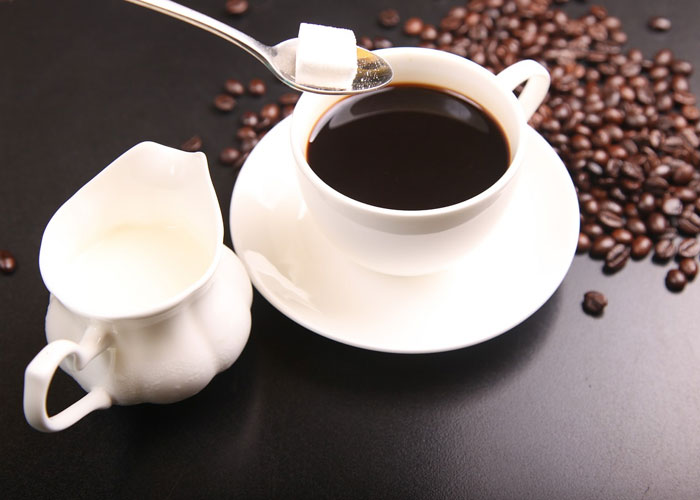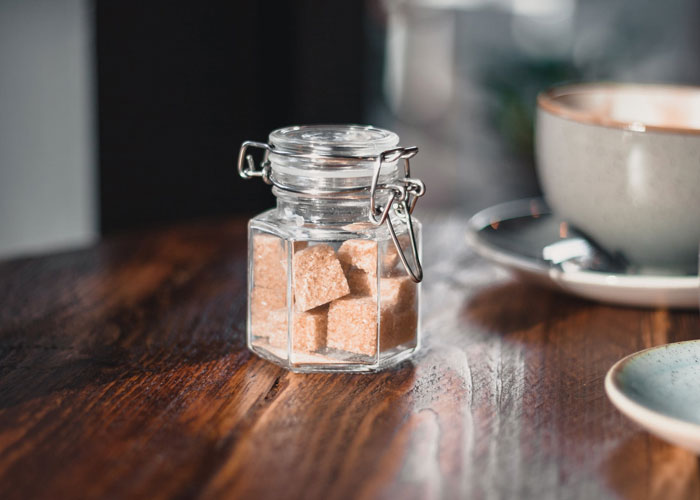One Lump of Sugar or Two?

There was a time when sweetening your coffee was a simple undertaking. You just dumped in a few sugar cubes or a couple of teaspoons of sugar, and you were done. But in the modern day where people are taking a much healthier approach to eating, particularly when it comes to our intake of refined sugar, you probably want to give your coffee sweetener much more thought than that.
You could dispense with sweeteners altogether, but many people just can’t tolerate the bitterness of unsweetened coffee. Especially if you are enjoying iced coffee or iced tea during the summer, you will very often want something to add sweetness to the flavor so that it will go down more smoothly. But how do you know which sweetener to choose?
The Exotic Bean is happy to help. Here’s your essential guide to what’s good, bad, healthy and maybe not so healthy when it comes to coffee sweeteners.
Sugar and Coffee
Let’s start by talking about sugar. When we refer to sugar as a coffee sweetener, we are talking about sucrose. Sucrose is a “natural sweetener,” which may add to its appeal for some.
Sugar used as a coffee sweetener is usually either raw sugar, which contains molasses, or white sugar, which has had the molasses processed out. The one you choose, of course, is a matter of taste.
However, an excess amount of sugar can lead to weight gain and even diabetes, so you may want to replace the sugar in your coffee with an artificial sweetener or an alternative natural sweetener instead. Read on!
Artificial Sweeteners for Coffee Drinks
There tend to be four major artificial sweeteners that are typically used to sweeten drinks like coffee or tea. They include:
- Aspartame, found in artificial sweetener brands like Equal as well as in many diet sodas;
- Saccharin, one of the oldest artificial sweeteners, which you will find under the brand name Sweet’N Low;
- Sucralose, which is what you will find in your Splenda packet; and
- Stevia products like SweetLeaf and Truvia.
Some people prefer Stevia because it is more “natural,” coming from a plant, although there is processing involved. However, many find Stevia to be excessively sweet and for some, it can even cause bloating or nausea.
Choosing one of the other types of artificial sweetener is generally a matter of taste. However, there have been studies suggesting aspartame and saccharin can actually lead to weight gain.
Additionally, early studies on saccharin found that it caused cancer in rats, although it should be noted that in every decade since, there has been no consistent evidence that saccharin has any effect on cancer rates in humans.

Natural Sweeteners for Coffee
Natural sweeteners that are alternatives to sucrose include honey, molasses, and maple syrup, among other more novel additives. You will have to try these to see which ones you like best in coffee, and keep in mind that you may find some that are acceptable in hot coffee to not be as suitable for iced coffee and vice versa.
Also, keep in mind that the main reason to use a different natural sweetener as an alternative to sugar is taste, as products like honey and molasses contain sucrose and other sugars and pose similar health risks, although honey can have some health benefits as well.
Once you’ve settled on which sweeteners you love, you’ll need a great cup of coffee to put it into. We at The Exotic Bean recommend the aromatic and flavorful Paradise Mountain organic coffee from Thailand. Order some for yourself today.
